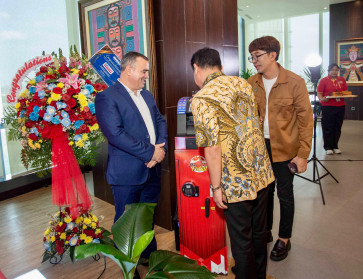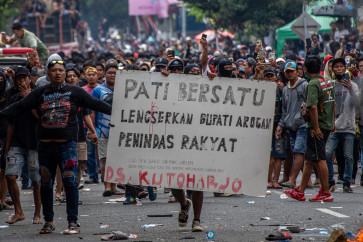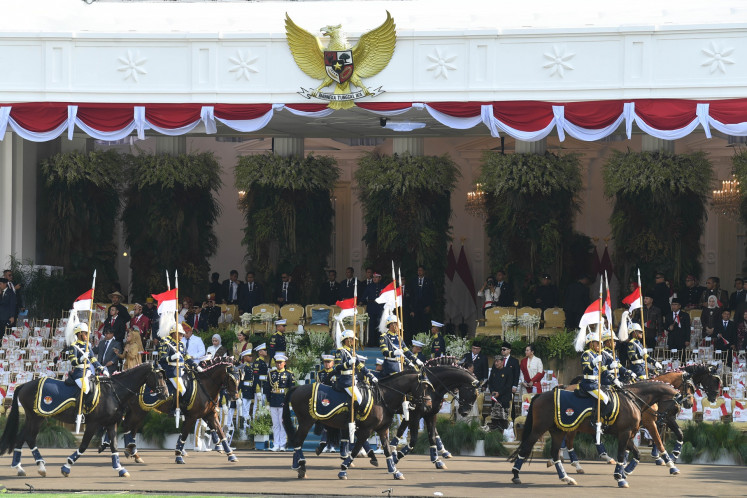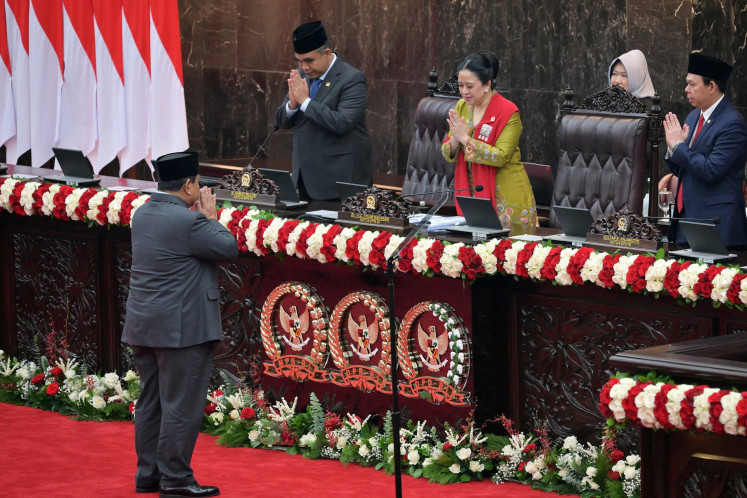Popular Reads
Top Results
Can't find what you're looking for?
View all search resultsPopular Reads
Top Results
Can't find what you're looking for?
View all search resultsUniversities join hands to tackle funding issues
Dozens of state-owned and private universities in the country recently agreed to join hands to overcome limited government funding for academics, research and innovation
Change text size
Gift Premium Articles
to Anyone
D
ozens of state-owned and private universities in the country recently agreed to join hands to overcome limited government funding for academics, research and innovation.
Forty-one state and private universities have agreed to take part in the newly established Eastern Part of Indonesia-University Network (EPI-UNET).
The forum would help universities cope with the limited amount of research as well as research funds, Surabaya’s 10 November Institute of Technology (ITS) rector Joni Hermana said over the weekend.
“Collaboration can manage the issue of limited human resources. Not only that, but the final research in scientific journals or publications could multiply each year because the research is conducted jointly, with varied topics and human resources,” he told The Jakarta Post.
The universities participating in EPI-UNET, under the coordination of ITS, are divided into four corridors: Corridor I for Papua and Maluku, Corridor II for Bali and Nusa Tenggara, Corridor III for Sulawesi and Corridor IV for Kalimantan.
The universities can allocate research funds in accordance with their abilities. The funds will then be used jointly under a cross-subsidy scheme.
Citing an example, Joni said that if ITS allocated Rp 2 billion (US$147,820) for 20 research projects in one year, researchers from ITS could ask colleagues from other universities under the EPI-UNET banner to undertake joint research.
“If ITS takes research from universities in Papua and Sulawesi, there will be three research results based on only one funding source,” he explained.
The scheme is expected to boost publications from Indonesian researchers. Moreover, it will allow for the transfer of knowledge among university employees and expand opportunities for research activities.
The forum will also provide shared support facilities for member universities.
Separately, ITS deputy rector of research and inter-institution relations Ketut Buda Artana said the government allocated only 0.2 percent of the state budget to research.
The figure lags behind other countries in Asia such as Malaysia, Singapore and China.
“Our problems include limited funds and human resources that do not match local natural resources. We have abundant natural resources but we don’t have experts to manage them,” he said.
For example, he said, there were no universities in Papua with a wood management faculty, though Papua is rich in timber resources.
ITS allocated Rp 30 to 40 billion last year for research, Artana added. The figure was below the ideal 10 percent funding allocation. “With ITS’ total budget of Rp 700 billion per year, research funding should be at least Rp 70 billion,” he said.
Philippus Betaubun, rector of Musamus University in Merauke, Papua, commended the establishment of the forum, saying it would help to develop the university in terms of academics, research and human resources, increasing the quality of the institution.
The collaboration between universities has caught the attention of the Indonesian Endowment Fund for Education (LPDP) at the Finance Ministry, which is set to donate extra funds for research purposes.
LPDP funding director Abdul Kahar said the forum’s work plan was in accordance with the LPDP’s mission of funding research by Indonesian academics.










